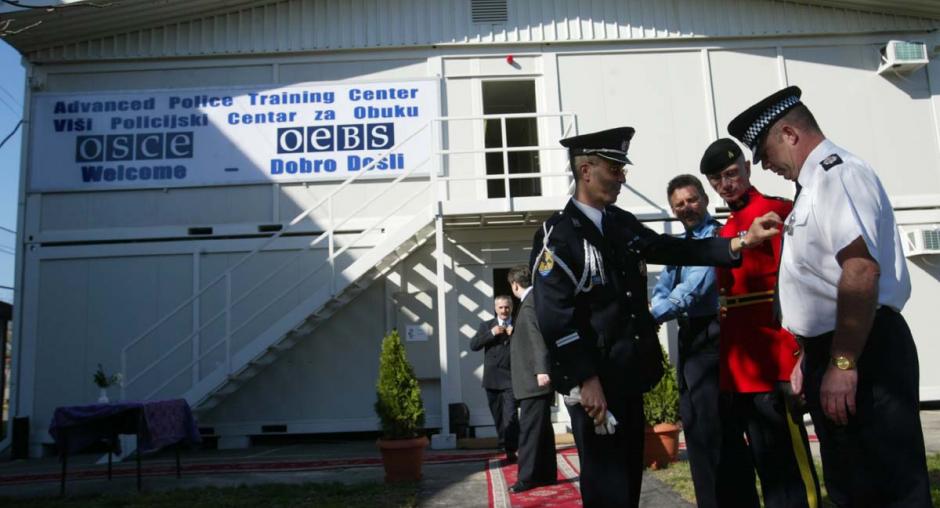Newsroom
OSCE Mission supports further police training in southern Serbia
BELGRADE 30 July 2004

(Milan Obradovic)The OSCE's advanced police training centre in Belgrade, opened on 29 October 2002, is aimed at providing higher quality of policing for Serbia. (Milan Obradovic) Photo details
BELGRADE, 30 July 2004 - The Serbian Ministry of Interior and the OSCE Mission to Serbia and Montenegro have today signed an agreement to identify further training needs of the Serbian Police in southern Serbia.
According to the agreement, mission staff will meet their counterparts in the Serbian police and representatives of south Serbian municipalities to support the participation of civic leaders to determine further in-service training for the police, especially in the field of community and multi-ethnic policing.
Signing on behalf of the OSCE Mission to Serbia and Montenegro, Acting Head of Mission Mark Davison highlighted the importance of the assessment.
"We are particularly interested in building on the success of police training in southern Serbia by promoting further co-operation between the police and the local multi-ethnic communities," he said.
"In this way we can reinforce both security and co-operation in this strategic area."
The OSCE Mission to Serbia and Montenegro is one of the main partners of the Serbian Government in implementing the Covic Plan, which ended the conflict in southern Serbia in 2001. The Mission has focused particularly on bringing modern policing methods to more than 700 officers, including the multi-ethnic police, to date.
According to the agreement, mission staff will meet their counterparts in the Serbian police and representatives of south Serbian municipalities to support the participation of civic leaders to determine further in-service training for the police, especially in the field of community and multi-ethnic policing.
Signing on behalf of the OSCE Mission to Serbia and Montenegro, Acting Head of Mission Mark Davison highlighted the importance of the assessment.
"We are particularly interested in building on the success of police training in southern Serbia by promoting further co-operation between the police and the local multi-ethnic communities," he said.
"In this way we can reinforce both security and co-operation in this strategic area."
The OSCE Mission to Serbia and Montenegro is one of the main partners of the Serbian Government in implementing the Covic Plan, which ended the conflict in southern Serbia in 2001. The Mission has focused particularly on bringing modern policing methods to more than 700 officers, including the multi-ethnic police, to date.
